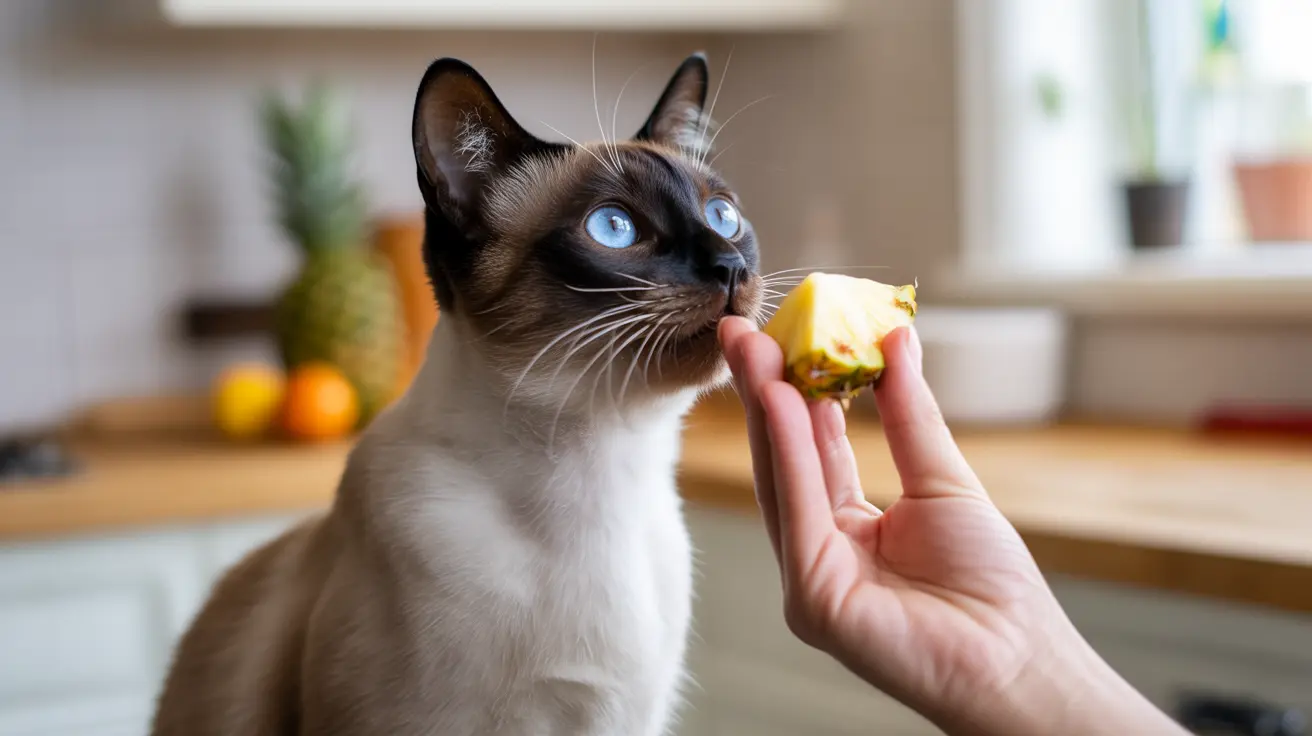As a pet owner, you might wonder about sharing your favorite tropical treats with your feline friend. Pineapple, with its sweet and tangy flavor, may seem like an appealing snack, but is it safe for cats? Understanding the nuances of feline nutrition is crucial to keeping your furry companion healthy and happy.
While cats can technically consume small amounts of pineapple, it's not an ideal treat for their diet. As obligate carnivores, cats have specific nutritional needs that fruits like pineapple simply cannot meet.
Nutritional Considerations for Cats and Pineapple
Cats have a unique digestive system designed primarily for meat consumption. Unlike humans, they don't derive significant nutritional benefits from fruits. Pineapple contains various vitamins and minerals such as vitamin C, vitamin A, B6, folate, manganese, and potassium. However, cats cannot process these nutrients from fruit as efficiently as humans can.
The Sugar Content Concern
One of the primary reasons to be cautious about feeding pineapple to cats is its high sugar content. Excessive sugar intake can lead to several health issues in cats, including:
- Weight gain
- Increased risk of diabetes
- Potential gastrointestinal upset
- Dental problems
Safely Introducing Pineapple to Your Cat's Diet
If you're determined to offer your cat a small taste of pineapple, follow these strict guidelines:
Preparation and Portion Control
- Only use fresh, ripe pineapple
- Remove all skin, rind, and thorns
- Cut into tiny, bite-sized pieces
- Limit to extremely small quantities
- Avoid canned pineapple due to added sugars and preservatives
What to Avoid
Some pineapple-related items are definitive no-nos for cats:
- Unripe pineapple (can be toxic)
- Pineapple leaves
- Canned or processed pineapple
- Large quantities of any fruit
Potential Risks of Pineapple Consumption
While small amounts of ripe pineapple flesh are generally safe, cats can experience several digestive issues, including:
- Bloating
- Gas
- Diarrhea
- Potential gastrointestinal blockages (especially from leaves)
Pineapple Leaves: A Strict Warning
Pineapple leaves are not toxic but are highly indigestible. They are primarily composed of cellulose and fibrous material, which can cause significant digestive problems if consumed. If your cat ingests pineapple leaves, monitor for symptoms like vomiting, changes in appetite, or abnormal defecation.
Alternatives to Pineapple
Instead of offering pineapple, consider these cat-friendly alternatives that provide more nutritional value:
- Lean, cooked meats
- Specific cat treats formulated by veterinary nutritionists
- Small amounts of plain, cooked fish
Frequently Asked Questions
Is pineapple safe for cats to eat, and what are the potential risks?
Pineapple is safe in very small quantities, but it comes with risks like high sugar content and potential digestive issues.
How much pineapple can I safely give to my cat, and what parts should I avoid?
Offer only tiny pieces of ripe pineapple flesh, avoiding leaves, skin, and rind. Limit to minimal amounts.
What nutritional benefits, if any, does pineapple offer to cats, given their diet?
Minimal to no nutritional benefits. Cats are carnivores and do not require fruit in their diet.
Can cats eat pineapple leaves, and are there any health risks involved?
Cats should not eat pineapple leaves. They are indigestible and can cause gastrointestinal blockages.
How should I introduce pineapple into my cat's diet, and are there alternatives I should consider?
Consult your veterinarian first. Meat-based treats are always a better option for cats.
Remember, when in doubt, always consult with a veterinary professional before introducing any new food to your cat's diet.






